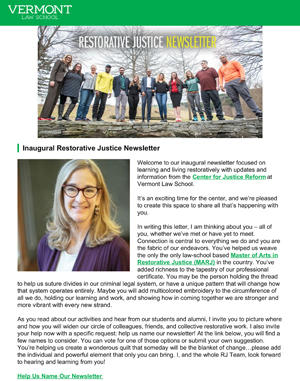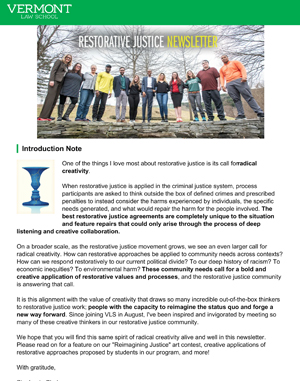About This Class
Resolving environmental disputes is notoriously difficult. These conflicts involve multiple parties, complicated factual matters and typically resist simple solutions. In this course, students will explore these characteristics, investigate the full range of processes available to manage environmental disputes and assesses relevant policy and practical considerations of process selection. Over the course of the semester, we will compare the use of adversarial and collaborative processes in environmental disputes and explore the advantages and disadvantages of different approaches. We will rely heavily on simulations to explore theories and build the skills needed to be effective environmental negotiators. Through this course you will develop an understanding of how to create an effective problem-solving climate that will meet your client's needs.
ATTENDING THE FIRST CLASS IS MANDATORY
Students cannot take this course and Alternative Dispute Resolution, or Negotiating Environmental Agreements in the Summer Session.
Environmental Law and Administrative Law are strongly recommended, but not required.
Explores the range of processes that are used to resolve environmental disputes with particular emphasis on consensual processes such as negotiation and mediation. Instruction will be based on lectures and discussions of the theory of dispute resolution and environmental law and simulations to practice the skills needed to resolve environmental disputes.ATTENDING THE FIRST CLASS IS MANDATORY
Students cannot take this course and Alternative Dispute Resolution, or Negotiating Environmental Agreements in the Summer Session.
Environmental Law and Administrative Law are strongly recommended, but not required.



















